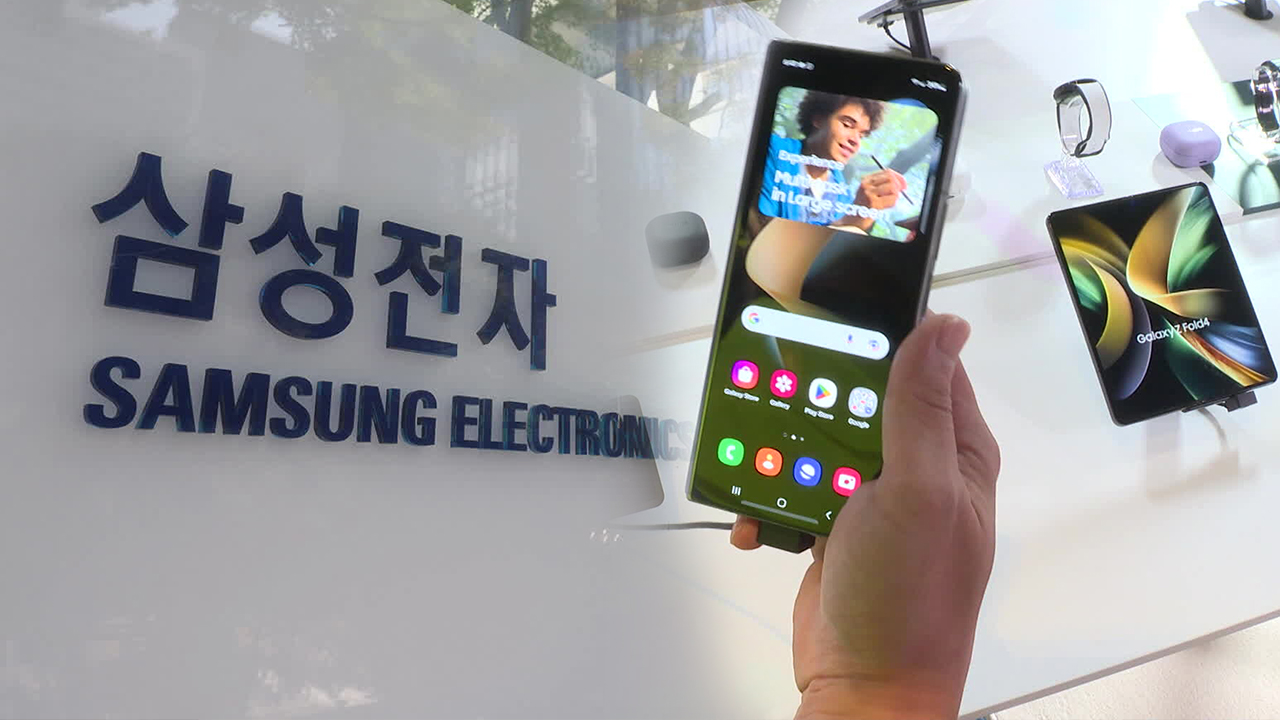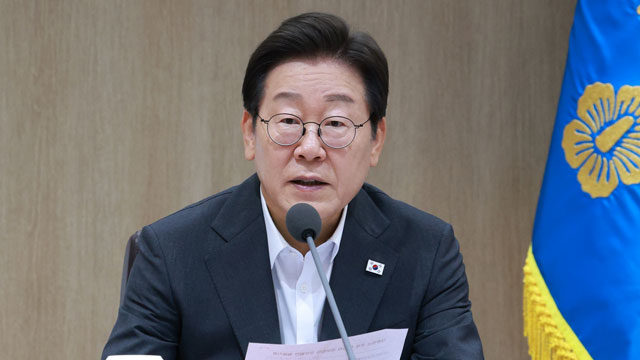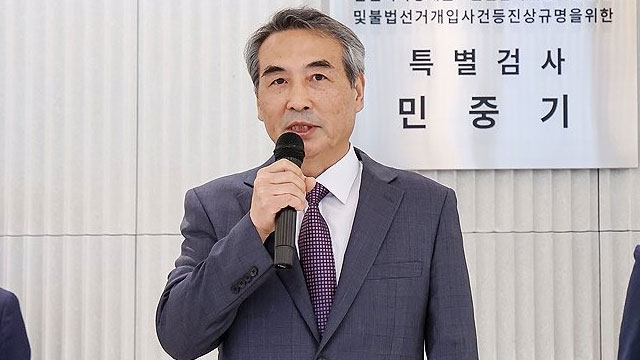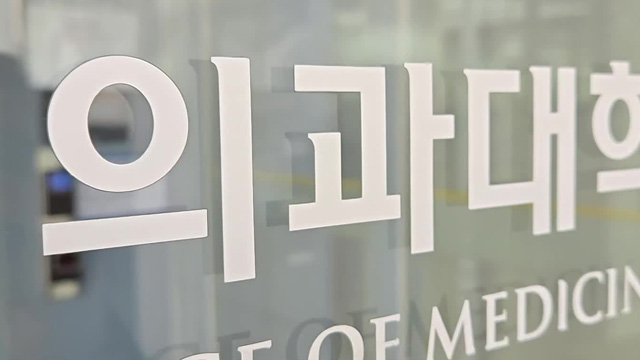Samsung struggles to keep pace in AI boom market
입력 2024.10.08 (22:40)
읽어주기 기능은 크롬기반의
브라우저에서만 사용하실 수 있습니다.
[Anchor]
Today (10.8), even before the earnings announcement, the so-called Samsung Electronics crisis theory has widely spread in the market.
Reporter Gye Hyun-woo analyzes when and for what reasons Samsung Electronics, which once boasted a significant lead over its competitors and rose to develop into a world-class company, became a company in crisis.
[Report]
The poor performance of Samsung Electronics is attributed mainly to the decrease in demand for smartphones and PCs.
The demand for these electronic devices, which account for 40% of the demand for memory semiconductors like DRAM, has fallen short of expectations, and recently, DRAM prices have dropped by more than 10%.
In the explanatory materials released by Samsung Electronics today, the sluggish performance of the memory business was also cited as a factor for the decline in earnings.
However, there are growing concerns in the market that Samsung's crisis has become a reality.
While the recovery of demand for general-purpose DRAM, which is Samsung's mainstay, is expected to be slow for the time being, the demand for high-value-added artificial intelligence and server memory, driven by the AI boom, remains robust.
This so-called 'memory polarization' is deepening, as Samsung has not achieved clear results in the AI semiconductor field and has failed to catch up in terms of the technological gap.
In fact, Samsung Electronics has revealed that the commercialization of the 5th generation high bandwidth memory, HBM3E, has been delayed by more than expected, effectively acknowledging that the quality testing by the market's big player NVIDIA is taking longer than anticipated.
[Noh Geun-chang/Head of Research Center, Hyundai Motor Securities: "The problem is not that the semiconductor winter has begun, but that Samsung Electronics is in winter due to weakened competitiveness in AI semiconductor and foundry markets. The key going forward will be whether Samsung can enhance its technological capabilities in this field."]
There are even forecasts that at the earnings announcement at the end of October, SK hynix, which holds the lead in HBM, will surpass Samsung Electronics' semiconductor operating profit.
KBS News, Gye Hyun-woo.
Today (10.8), even before the earnings announcement, the so-called Samsung Electronics crisis theory has widely spread in the market.
Reporter Gye Hyun-woo analyzes when and for what reasons Samsung Electronics, which once boasted a significant lead over its competitors and rose to develop into a world-class company, became a company in crisis.
[Report]
The poor performance of Samsung Electronics is attributed mainly to the decrease in demand for smartphones and PCs.
The demand for these electronic devices, which account for 40% of the demand for memory semiconductors like DRAM, has fallen short of expectations, and recently, DRAM prices have dropped by more than 10%.
In the explanatory materials released by Samsung Electronics today, the sluggish performance of the memory business was also cited as a factor for the decline in earnings.
However, there are growing concerns in the market that Samsung's crisis has become a reality.
While the recovery of demand for general-purpose DRAM, which is Samsung's mainstay, is expected to be slow for the time being, the demand for high-value-added artificial intelligence and server memory, driven by the AI boom, remains robust.
This so-called 'memory polarization' is deepening, as Samsung has not achieved clear results in the AI semiconductor field and has failed to catch up in terms of the technological gap.
In fact, Samsung Electronics has revealed that the commercialization of the 5th generation high bandwidth memory, HBM3E, has been delayed by more than expected, effectively acknowledging that the quality testing by the market's big player NVIDIA is taking longer than anticipated.
[Noh Geun-chang/Head of Research Center, Hyundai Motor Securities: "The problem is not that the semiconductor winter has begun, but that Samsung Electronics is in winter due to weakened competitiveness in AI semiconductor and foundry markets. The key going forward will be whether Samsung can enhance its technological capabilities in this field."]
There are even forecasts that at the earnings announcement at the end of October, SK hynix, which holds the lead in HBM, will surpass Samsung Electronics' semiconductor operating profit.
KBS News, Gye Hyun-woo.
■ 제보하기
▷ 카카오톡 : 'KBS제보' 검색, 채널 추가
▷ 전화 : 02-781-1234, 4444
▷ 이메일 : kbs1234@kbs.co.kr
▷ 유튜브, 네이버, 카카오에서도 KBS뉴스를 구독해주세요!
- Samsung struggles to keep pace in AI boom market
-
- 입력 2024-10-08 22:40:48

[Anchor]
Today (10.8), even before the earnings announcement, the so-called Samsung Electronics crisis theory has widely spread in the market.
Reporter Gye Hyun-woo analyzes when and for what reasons Samsung Electronics, which once boasted a significant lead over its competitors and rose to develop into a world-class company, became a company in crisis.
[Report]
The poor performance of Samsung Electronics is attributed mainly to the decrease in demand for smartphones and PCs.
The demand for these electronic devices, which account for 40% of the demand for memory semiconductors like DRAM, has fallen short of expectations, and recently, DRAM prices have dropped by more than 10%.
In the explanatory materials released by Samsung Electronics today, the sluggish performance of the memory business was also cited as a factor for the decline in earnings.
However, there are growing concerns in the market that Samsung's crisis has become a reality.
While the recovery of demand for general-purpose DRAM, which is Samsung's mainstay, is expected to be slow for the time being, the demand for high-value-added artificial intelligence and server memory, driven by the AI boom, remains robust.
This so-called 'memory polarization' is deepening, as Samsung has not achieved clear results in the AI semiconductor field and has failed to catch up in terms of the technological gap.
In fact, Samsung Electronics has revealed that the commercialization of the 5th generation high bandwidth memory, HBM3E, has been delayed by more than expected, effectively acknowledging that the quality testing by the market's big player NVIDIA is taking longer than anticipated.
[Noh Geun-chang/Head of Research Center, Hyundai Motor Securities: "The problem is not that the semiconductor winter has begun, but that Samsung Electronics is in winter due to weakened competitiveness in AI semiconductor and foundry markets. The key going forward will be whether Samsung can enhance its technological capabilities in this field."]
There are even forecasts that at the earnings announcement at the end of October, SK hynix, which holds the lead in HBM, will surpass Samsung Electronics' semiconductor operating profit.
KBS News, Gye Hyun-woo.
Today (10.8), even before the earnings announcement, the so-called Samsung Electronics crisis theory has widely spread in the market.
Reporter Gye Hyun-woo analyzes when and for what reasons Samsung Electronics, which once boasted a significant lead over its competitors and rose to develop into a world-class company, became a company in crisis.
[Report]
The poor performance of Samsung Electronics is attributed mainly to the decrease in demand for smartphones and PCs.
The demand for these electronic devices, which account for 40% of the demand for memory semiconductors like DRAM, has fallen short of expectations, and recently, DRAM prices have dropped by more than 10%.
In the explanatory materials released by Samsung Electronics today, the sluggish performance of the memory business was also cited as a factor for the decline in earnings.
However, there are growing concerns in the market that Samsung's crisis has become a reality.
While the recovery of demand for general-purpose DRAM, which is Samsung's mainstay, is expected to be slow for the time being, the demand for high-value-added artificial intelligence and server memory, driven by the AI boom, remains robust.
This so-called 'memory polarization' is deepening, as Samsung has not achieved clear results in the AI semiconductor field and has failed to catch up in terms of the technological gap.
In fact, Samsung Electronics has revealed that the commercialization of the 5th generation high bandwidth memory, HBM3E, has been delayed by more than expected, effectively acknowledging that the quality testing by the market's big player NVIDIA is taking longer than anticipated.
[Noh Geun-chang/Head of Research Center, Hyundai Motor Securities: "The problem is not that the semiconductor winter has begun, but that Samsung Electronics is in winter due to weakened competitiveness in AI semiconductor and foundry markets. The key going forward will be whether Samsung can enhance its technological capabilities in this field."]
There are even forecasts that at the earnings announcement at the end of October, SK hynix, which holds the lead in HBM, will surpass Samsung Electronics' semiconductor operating profit.
KBS News, Gye Hyun-woo.
-
-

계현우 기자 kye@kbs.co.kr
계현우 기자의 기사 모음
-
이 기사가 좋으셨다면
-
좋아요
0
-
응원해요
0
-
후속 원해요
0












![[단독] 위성락 실장 “전작권 협상 카드 아냐…카드로 써서도 안 돼”](/data/layer/904/2025/07/20250713_uwNBPL.jpg)


이 기사에 대한 의견을 남겨주세요.